
![]() JOIN THE CONVERSATION: #SDGS
JOIN THE CONVERSATION: #SDGS
The Sustainable Development Goals (SDGs) are the core of an ambitious global framework based on the idea that development should be economically, socially, and environmentally sustainable. Global priority areas, such as poverty eradication, reduced inequalities, and sustainable economic growth, underpin SDGs and are particularly important for developing countries. However, with faltering growth and rising vulnerabilities in many of these countries, SDG implementation is facing setbacks and SDG-related spending could add to already rising debt burdens.
This seminar will focus on the following questions: What are the spending needs to achieve the SDGs? How can countries meet their social and investment spending priorities without compromising debt sustainability? How can SDG implementation be supported through stronger tax capacity and greater spending efficiency? How can development partners, the private sector, and other international stakeholders support the implementation of SDGs?
Opening Remarks
Moderator: Rachelle Akuffo, Business Anchor, CGTN America
Panelists:
Masood Ahmed, President, Center for Global Development
Belay Begashaw, Director General, SDG Center for Africa
Winnie Byanyima, Executive Director, Oxfam International
Jeffrey Sachs, Director, Center for Sustainable Development, Columbia University
With faltering growth and rising debt vulnerabilities in many developing countries, implementation of the Sustainable Development Goals (SDGs) is facing setbacks and SDG-related spending is being cut. Panelists discussed ways to galvanize resources needed to achieve the SDGs.
Key Points:
· Domestic revenue mobilization and the role of ODA: The panelists thought that the notion that the private sector can bridge the financing gap to deliver on the SDGs is unrealistic. Few, if any, of the SDGs can be achieved without significant public financing, requiring major increases in domestic resource mobilization. Sachs and Ahmed stressed, however, that countries with income levels below US$3,000 per capita—low-income and fragile and conflict affected states—cannot fund investment needs on their own and often do not have the institutions and governance frameworks in place to successfully mobilize adequate revenue. Begashaw added that rapid population growth and climate change could undermine efforts to achieve SDGs. Panelists emphasized that official development assistance (ODA) remains essential and urged AEs to meet their commitment to allocate 0.7 percent of their GNI to development aid.
· Tackling tax evasion: Tax havens deprive countries of the revenue needed to fund vital public services like health and education, notedByanyima. She added that efforts to tackle global tax avoidance were being undermined by a race to the bottom on corporate tax rates. Citing a recent report by Oxfam International, Byanyima noted that the 50 biggest US companies have more than a trillion dollars offshore, and for every $1 spent on lobbying have collectively received $130 in tax breaks and more than $4,000 in federal loans, loan guarantees and bailouts.
· Africa rising. With Africa forecast to have the world’s largest working-age population in the next two decades, Ahmed noted that the consequences of not investing in SDGs would be dire. The demographic and economic transformation on the continent will shape the future of the world for the next century, he added. To be productive and prosper, spending on health and education is key.
Quotes:
“Development aid is not passé. Even though there are trillions of dollars in capital markets, they are not going to finance health, education, sanitation and other basic needs of poor people. Jeffrey Sachs
“The idea that taxes are detrimental to wellbeing is an American fiction. We have 2,800 billionaires right now. They have $10 trillion of net worth. Tax them and put the money to the SDG budgets of low-income countries so children can go to school”. Jeffrey Sachs
“In this interconnected world, our futures are intertwined. The cost of not investing in SDGs is not investing in our own collective future.” Masood Ahmed
“SDGs are a lesson in how to plan from future to present.” Belay Begashaw
“82 percent of all new wealth created last year was captured by the top 1 percent. The hard-working at the bottom got nothing. This is the economy we are in.” Winnie Byanyima
Contributor: Analisa Ribeiro Bala
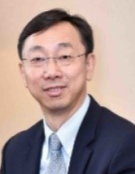 |
| Tao Zhang |
| Deputy Managing Director, IMF |
Mr. Tao ZHANG assumed the role of Deputy Managing Director at the IMF on August 22, 2016. He brings extensive international economic expertise and experience in policymaking, including with international financial institutions, from his previous appointments as the Deputy Governor of the People’s Bank of China and IMF’s Executive Director for China from 2011 to 2015.
Prior to his position as the Deputy Governor, Mr. Zhang held a number of high-level positions in the People’s Bank of China: Director-General of the Legal Affairs Department; Director-General of the International Department; and, Director-General of Financial Survey and Statistics Department. Mr. Zhang also worked at the World Bank from 1995 to 1997 and at the Asian Development Bank from 1997 to 2004.
Mr. Zhang holds an M.A. and Ph.D. in International Economics from the University of California, Santa Cruz, as well as a B.S. in Electrical Engineering and an M.S. in Finance from Tsinghua University in Beijing.
 |
| Rachelle Akuffo |
| Business Anchor, CGTN America |
Rachelle Akuffo is the Washington D.C.-based anchor of Global Business America. The British-Ghanaian journalist joined CGTN America in February 2012 and has interviewed a range of CEOs and leading newsmakers, and reported on some of the world’s most pressing issues. Rachelle also launched the show’s award-winning startups segment, Starting Block. Ms. Akuffo began her career as a radio journalist in England and went on to work as an anchor and reporter for Swiss bank Dukascopy, covering market-moving financial news. She was also a correspondent for the millennial-focused digital news service, OneMinuteNews. Ms. Akuffo has received several accolades including one from Digital Hollywood for her coverage of the 2008 U.S. elections and a 2015 Clarion Award for her reporting on the struggles of Latina entrepreneurs. A strong proponent of volunteerism, Ms. Akuffo was crowned Miss Ghana International in 2005 which gave her a unique platform for charitable projects in health, education and business. She has also lent her services as a newsreader for the blind. Ms. Akuffo is an alumnus of Howard University in Washington D.C. and of London’s Brunel University.
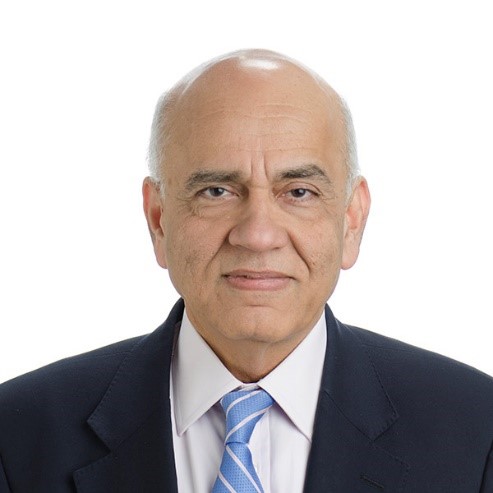 |
| Masood Ahmed |
| President, Center for Global Development |
Masood Ahmed is president of the Center for Global Development. He joined the Center in January 2017, capping a 35-year career driving economic development policy initiatives relating to debt, aid effectiveness, trade, and global economic prospects at major international institutions including the IMF, World Bank, and DFID.
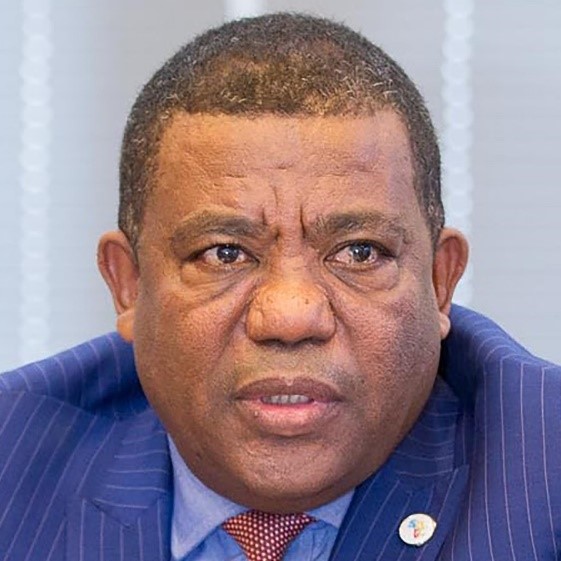 |
| Belay Begashaw |
| Director General, Sustainable Development Goals Center for Africa |
Prior to being appointed as Director General to the SDGC/A, Dr. Begashaw was the Director of the Columbia Global Centers for Africa as part of the Earth Institute (EI). He joined the EI in January 2009 as a Senior Agriculture Policy Specialist for Eastern and Southern Africa, and soon became the Director of the MDG Centre in Nairobi, Kenya. He has served as the Associate Director of the Agriculture and Food Security Center of the EI.
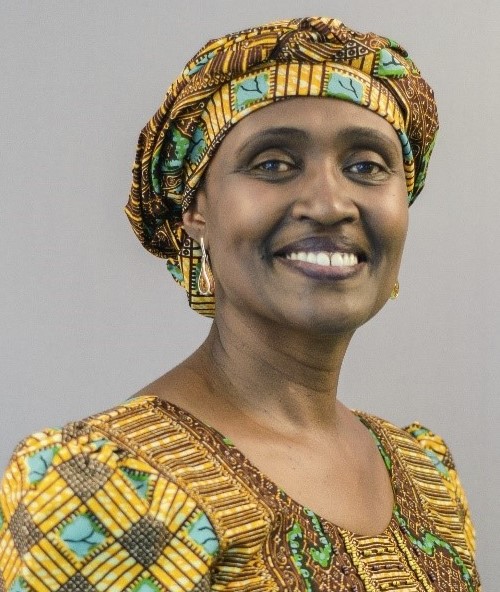 |
| Winnie Byanyima |
| Executive Director, Oxfam International |
Winnie Byanyima, Executive Director at Oxfam International, is a world-renowned women’s rights leader, human rights defender and a global authority on economic inequality. At Oxfam she leads a confederation of 20 civil society organisations working in more than 90 countries worldwide empowering people to create a future that is secure, just, and free from poverty.
Ms Byanyima serves also on the Global Commission on the Future of Work established by the International Labour Organization. She currently chairs the World Economic Forum’s Regional Strategy Group for Africa. She recently served on the United Nations (UN) High-Level Panel on Women’s Economic Empowerment.
Prior to Oxfam, Ms Byanyima led the directorates on gender and development at the UN Development Programme and the African Union Commission. A Ugandan national, Ms. Byanyima was elected for three terms and served eleven years in the Ugandan Parliament.
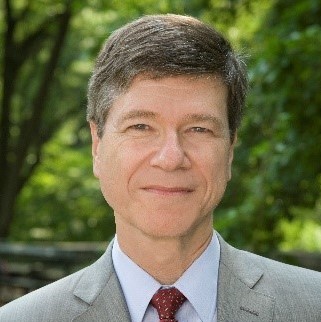 |
| Jeffrey Sachs |
| Director, Center for Sustainable Development, Columbia University |
Professor Jeffrey Sachs serves as the Director of the Center for Sustainable Development at Columbia University. During 2002 to 2016 he served as the Director of the Earth Institute. Sachs is Special Advisor to United Nations Secretary-General António Guterres on the Sustainable Development Goals. He is also Director of the UN Sustainable Development Solutions Network (under the auspices of UN Secretary-General Guterres), Chair and Founder of SDG USA (a non-governmental initiative to promote sustainable development in the United States), and co-founder and Chief Strategist of Millennium Promise Alliance.